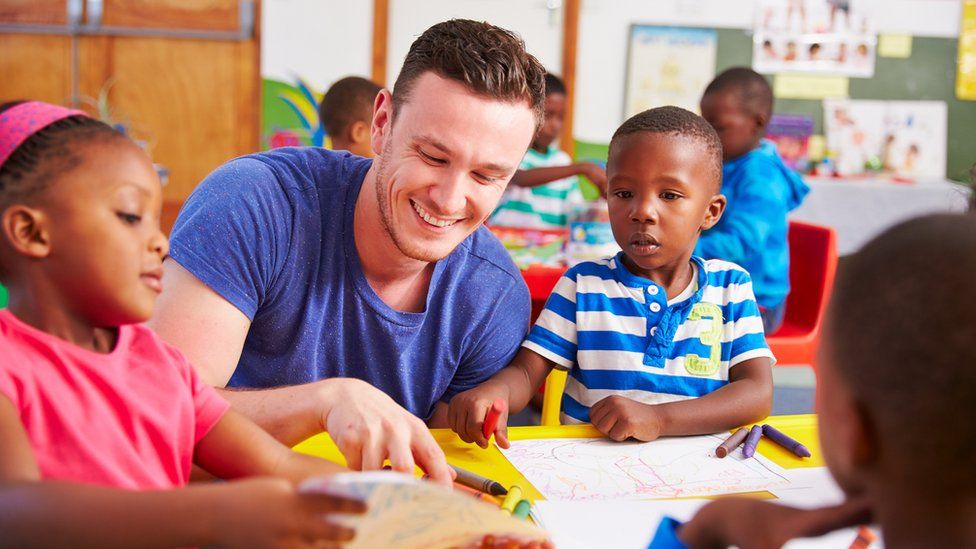ARTICLE AD BOX
 Image source, Getty Images
Image source, Getty Images
By James Landale & Chas Geiger
BBC News
A new international volunteering programme for young British people is to be launched by the government.
It is part of a package of measures aimed at restoring the UK's reputation for international development after cuts in aid spending in recent years.
Also included is a plan to get six million more girls into school.
International Development Minister Andrew Mitchell said he wanted forge new partnerships to find creative ways of helping developing countries.
This will involve support for more private sector investment, tackling fraud so developing countries can raise more in taxes, and support for research into bio-fortified crops.
With no little irony, the volunteering scheme will, in effect, reinstate a similar one - the international citizen service - which was scrapped two years ago because of cuts in the aid budget.
Mr Mitchell described it as "an opportunity for young people to engage internationally and support our development work across the world".
But he returned to government when Rishi Sunak became prime minister last October, and attends cabinet meetings as international development minister.
In a speech to foreign affairs think tank Chatham House, he was blunt, admitting the UK's reputation for supporting development had been "dented" by the decision to cut aid spending.
But, he added, he wanted to look forward to "new approaches" which would "reinvigorate" Britain's leadership on the issue and enable it to "punch above its weight".
'Britain is back'
Mr Mitchell said the aid budget [£12.8bn in 2022] was "still substantial" and there were several ways of multiplying its impact, including investment partnerships with private companies that could create jobs and prosperity in the poorest parts of the world.
"What I'm trying to do is ensure that we are again a development superpower and that we look to the future at all the things that we can do... demonstrating that Britain is back".
Among areas where he wanted greater ambition, Mr Mitchell said the UK would work with other governments to put an extra six million girls around the world in school over four years.
The government is now spending more of the foreign aid budget at home than on direct help for poor countries overseas, provisional figures from the Foreign, Commonwealth and Development Office (FCDO) show.
Some £3.7bn earmarked for international development was spent on housing rising numbers of refugees and asylum seekers in the UK in 2022, compared with £1.1bn in 2021 and £0.6bn in 2020.
Because the aid budget is capped at 0.5% of national income, charities say this means cuts in humanitarian spending in Africa and Asia.
Stephanie Draper, the chief executive of Bond, which represents UK non-governmental organisations working in international development, said: "It is welcome that Andrew Mitchell is keen to return to focusing UK aid on reducing poverty and tackling climate change. For too long, UK aid has been driven by UK political priorities.
"Refugees and asylum-seekers urgently need sufficient support, but we urge the minister to address the underlying reasons for why people need to flee in the first place and stop diverting the UK aid budget to reimburse other departments for refugee support costs."
To reclaim its development reputation, the UK must return to spending 0.7% of national income on foreign aid, she added.

 1 year ago
112
1 year ago
112








 English (US)
English (US)